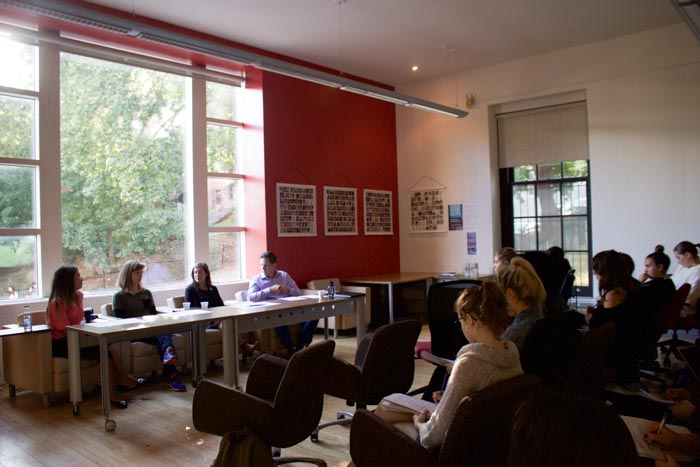On Sept. 28, the Social Equity and Diversity Education Office (SEDE) held the sixth annual Community Engagement Day (CED). Programming took place at various locations across Montreal—including on McGill’s downtown campus—and approximately 30 organizations participated, including the Montreal LGBTQ+ community centre, Radical Accessibility Audit Project (RAAP) Montreal, and Seeing Voices Montreal. These organizations collaborated with SEDE to put on a total of 50 projects across the city with volunteer activities, panel discussions, and workshops on current issues such as discrimination against the LGBTQ+ community and accessibility on campus.
According to Monika Barbe, CED program coordinator, the program aims to strengthen the partnership between McGill students and community service organizations in Montreal.
“[The goal of the CED] is to continue to plant the seeds of general social involvement and engagement within the community with the hope of opening the McGill bubble,” Barbe said. “Through specific partnerships with community organizations […] the participants get the chance to see with their own eyes […] how groups of people organize themselves to address issues that are important for them and to make changes happen.”
The day’s programming was segmented into smaller sections, including the CED talk series, a cluster of talks that aimed to facilitate dialogue between McGill participants and the general public to critically analyze the relationships between the university and local organizations. One such event was a panel discussion, “Taking Your Knowledge Outside The Classroom: Creating Social Impact In The Montreal Community,” featuring faculty and student speakers from the Desautels Faculty of Management.
Anurag Dhir, SEDE engaged learning and access coordinator, moderated the panel, focusing on academic research on partnerships between community organizations and university students.
“[This panel] critically engages with the idea of knowledge production and sharing that happens between the community and the university when you have university students working with community organizations,” Dhir said, in an interview after the panel. “[It] explores the benefits of [these collaborations] and the tensions that exist as well.”
The panelists shared their personal experiences participating in community organizations and solving problems using data and research. Nicholas Toronga, U2 Management student and one of the panelists, discussed the difficulty of applying his classroom knowledge during his previous involvement with Suspicious Fish, a creative literary and arts collective in Verdun, Quebec.
"When I think about taking knowledge outside the classroom, I think about adaptation,” Toronga said. “This is something that is very challenging, especially coming from the [Faculty of Management], you’re studying finance and you are super excited to use the modules, the marketing, and everything else. Then, you go to the organization and realize that maybe they’re still way behind and you have to work with […] a certain way of doing things. If you don’t acquaint yourself with them, things can go wrong.”
For Elizabeth Thomas, U0 Management, “Taking Your Knowledge Outside The Classroom” familiarized her with local outlets through which she can impact the community.
“[Attending this CED talk] is very important to me,” Thomas said. “I came here to [learn] how other people think [about social entrepreneurship] and to try to understand other people’s views compared to mine. It’s quite interesting that we [all] think in the same way.”
CED’s many volunteer events included a clothing sort at Chez Doris, a local women’s shelter, where McGill student volunteers helped organize clothing donations. One of them, Amy Hunt, is an exchange student from Northeastern University who came to Montreal for service learning. She was encouraged to be part of CED during her lecture for GSFS 200: Feminist and Social Justice Studies.
“I decided to do CED because of my feminism class, so I wanted to get involved,” Hunt said. “I think CED is awesome. If I were here [next year], I would participate again. I think it’s a great program for students.”








